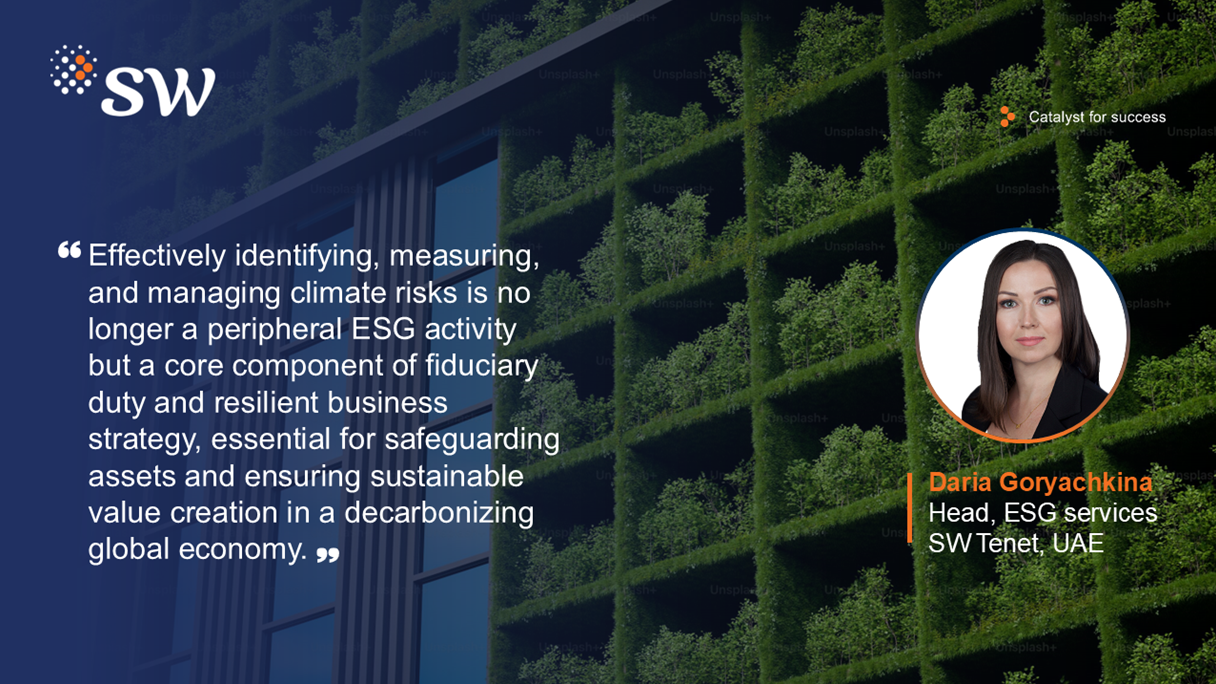
Climate risk has transcended its environmental origins to become a fundamental financial and strategic consideration for modern enterprises. Investors, lenders, and insurers increasingly recognize that both physical risks, such as extreme weather events disrupting supply chains, and transition risks, like evolving carbon pricing and shifts in consumer demand, can materially impact a company's performance, valuation, and long-term viability. Effectively identifying, measuring, and managing these risks is no longer a peripheral ESG activity but a core component of fiduciary duty and resilient business strategy, essential for safeguarding assets and ensuring sustainable value creation in a decarbonizing global economy.
In response to the demand for consistent and comparable data, the International Sustainability Standards Board (ISSB) has established a new global baseline for best practices in IFRS S1 General Requirements for Disclosure of Sustainability-related Financial Information and IFRS S2 Climate-related Disclosures. These standards provide a framework for companies to communicate their sustainability and climate-related risks and opportunities to capital markets. By connecting sustainability disclosures directly with financial reporting, IFRS S1 and S2 ensure that ESG and climate factors are assessed with the same rigor as other financial considerations, providing investors with decision-useful information that is reliable, transparent, and globally comparable.
Recognizing the complexities of implementation, the ISSB is actively refining its standards. Recently proposed amendments to IFRS S2 will help facilitate broader adoption by addressing key challenges. For instance, an exemption for disclosing Scope 3 GHG emissions from certain financial activities can ease the significant data collection burden for financial institutions. Similarly, allowing the use of jurisdiction-specific Global Warming Potential (GWP) values and alternative industry classifiers for banking and insurance provides practical flexibility. These changes, alongside new guidance on disclosing transition plans, will help companies provide a clear narrative on their climate strategy, thereby building investor confidence and making initial compliance more achievable.
Global shift from voluntary to mandatory reporting
The era of voluntary climate reporting is rapidly coming to an end as jurisdictions worldwide move to mandate disclosures based on the IFRS baseline. A pivotal development is the U.S. Securities and Exchange Commission (SEC) finalizing its mandatory climate risk disclosure rule for publicly traded companies. This landmark regulation requires extensive, standardized reporting on climate risks and, for larger companies, material Scope 1 and Scope 2 GHG emissions. The U.S. joins other jurisdictions with mandatory climate-related risk disclosures, such as Singapore, Australia, Hong Kong, and others. All in all, it makes climate disclosure a legal requirement, cementing its status as an integral and non-negotiable element of corporate reporting.